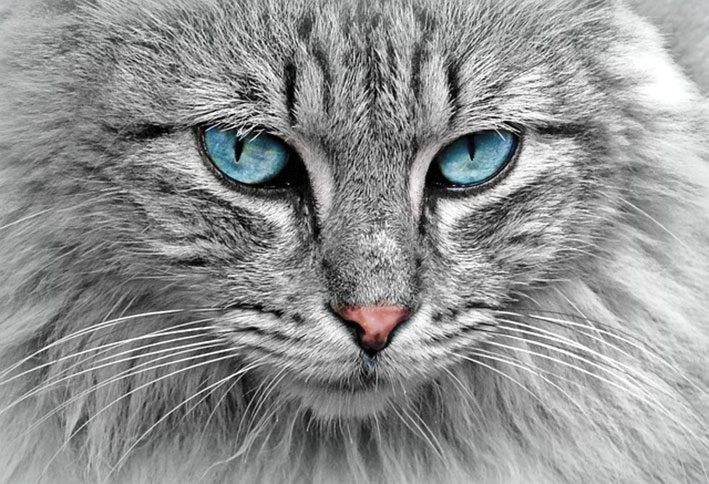Weird Things They Do

I just saw another scientific pet study, and they concluded that cats and dogs are different. Wow! I am sure they could have saved all that money on these studies if they had just asked any person who has/have had both a cat and a dog. These pet “parents” already came to that conclusion long ago. I do know why my cat/dog eats grass, but I have never seen a scientific study explaining why when a cat or dog eats grass outside, they almost always come inside to vomit that grass – now that’s a study.
There have been some specific studies about dogs and cats explaining: Why does my pet do that?
(A) Why do dogs circle before lying down? Dogs circle before lying down due to an instinctive behavior inherited from their wild ancestors. Circling the spot where they plan to rest serves several purposes: flattening grass or snow making a comfortable bed, driving away any hiding small critters and checking the spot for safety.
(B) Why do dogs bury their bones, food or other items? Wild dogs used to bury their food to hide and save for later so that other animals couldn’t get it. Although “our” dogs have plenty of food, they still may bury things by instinct. Some possible reasons: their owner is giving them too much food or toys and the dog wants to save it for later; or it is a game to them – they may steal valuable items from you, shoes or TV remotes, in order to get you to play with them.
(C) Why do pets sleep on you? In the wild, dogs would sleep close to their pack mates, and as a puppy your dog would have slept next to its mother/littermates. Sleeping on you may reinforce their sense of security, comfort, and warmth, and deepen the social bond with you.
(D) Why does my dog kiss me when I pet him? Licking is a natural and instinctive dog behavior. For them it’s a way of grooming, bonding, and expressing themselves. Your dog may lick you to say they love you, to get your attention, to help soothe themselves if they are stressed, or to show empathy.
(E) Why does my dog snore? Possible reasons for snoring: sleeping position, obesity, certain breeds with shorter noses (like bulldogs or pugs), allergies, or blocked airways. If your dog’s snoring is unusually loud, occurs every time they sleep, or they’re having difficulty breathing, it’s best to consult a vet. This could signal a health issue such as sleep apnea or a respiratory condition.
(F) Why does my cat knock things off the shelf ? Cats love to knock things over and watch them break, out of curiosity and possibly boredom. It may be your pet’s way of telling you it needs attention or wants to play.
(G)Why does my cat knead on me or her bedding? Kittens knead their mother when nursing to stimulate milk production. Kneading later in life may help to release the same feel-good hormones that occurred during nursing. It’s a sign of affection or to release tension and promotes relaxation. Cats may knead their favorite people to show affection and kneading leaves scent markings from the glands in the feet.
(H) Why does my cat love to drink from the faucet? It is believed that cats avoid motionless water sitting in a bowl because it appears to be unhealthy, an old instinct from the “wild.” Running water is perceived by cats to be fresher water, making the bath or kitchen faucet so desirable.
(I) Why does my cat always climb into boxes? Cats, much like little kids, sometimes prefer to play with the box than the gift that came in it came in. Put even the tiniest empty box on the floor and even if your cat is “chunky” it will try to squeeze into it. Your cat’s passion for boxes is a natural instinct. Felines are hunters and love to hide in small spaces before surprising their prey, making a box the perfect hideout. It’s cool and smooth and feels good.
(J) Why does my cat purr? Cats purr for a variety of reasons including when they are happy, when they are stressed to calm themselves, asking for food, and communicating with other cats. Cats may purr to make their humans happy and healthy. Scientists have reported that a cat’s purr can reduce blood pressure and stress levels in humans. Trivia: Big cats like lions, tigers, and jaguars can roar but can’t purr, while cheetahs can purr and not roar.
- YOU and Your Doctor Are Your Medical Team – February 2026 - January 30, 2026
- YOU and Your Doctor Are Your Medical Team – January 2026 - December 30, 2025
- If Our Pets Could Talk – December 2025 - November 29, 2025


 Discover trusted local services and hidden gems with our easy-to-use online directory.
Discover trusted local services and hidden gems with our easy-to-use online directory.

